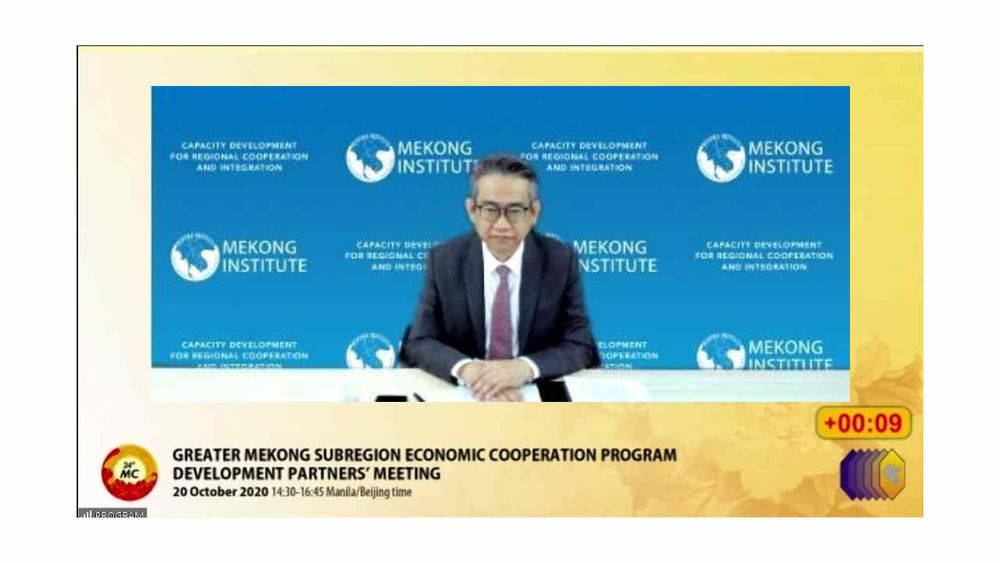“MI believes in complementarities because synergizing our strengths will define the success of the Greater Mekong Region’s (GMS) recovery in this challenging time.”
This was the statement of Mr. Suriyan Vichitlekarn, MI Executive Director, on deepening regional engagement for COVID-19 initiatives during the virtual Development Partners’ Meeting hosted by the Asian Development Bank last October 20, 2020.
Held annually, the meeting brought together officials from GMS governments, development organizations, as well as representatives from the private sector and civil society to discuss GMS programs’ response to the pandemic and the proposed GMS Strategic Framework 2030.
Beginning in July 2020, MI has been implementing capacity building activities, dialogue-for-action platforms, as well as documenting lessons learned to mobilize momentum among governments, development partners, and the private sector in addressing the impacts of COVID-19 on trade and investment facilitation, agricultural development and commercialization, and innovation technology and connectivity.
Specifically, MI has been helping small- and medium-sized enterprises better access new markets and identify new supply sources and markets for goods and services. It also has been advocating for the wider adaption of digitization so business groups in Cambodia, P.R China Lao PDR, Myanmar, Thailand, and Vietnam can maximize opportunities brought on by e-commerce. Moreover, MI has been working with tourism industries in the Mekong region to push forward the steady but safe recovery of the sector through smart technologies, while organizing online discussions such as the recently completed Food Safety Forum in Cambodia to underscore viable coping strategies that will help build back better a more sustainable food processing industry.
In support of the GMS Strategic Framework 2030, MI will continue to foster connectivity, competitiveness, and community by bridging partnerships and organizing dialogues among prime movers of Mekong subregional cooperation frameworks, as well as strengthen long-term capacity development and knowledge networks in the GMS.
These initiatives are aligned with MI’s Strategic Plan for 2021 to 2025. The document will include strategies to proactively support COVID-19 preparedness that will help set the foundation for inclusive and resilient economies in the GMS.
“Our call to action is to intensity public-private partnerships so we can collectively deliver impactful and holistic service deliveries, where no one, particularly the marginalized are left behind,” Mr. Suriyan said.
Insights and recommendations gathered from the Development Partners’ meeting, which included representatives from the World Bank, United Nation agencies, the Mission of the European Union to ASEAN, the AEM-METI Economic and Industrial Cooperation Committee, Mekong River Commission Secretariat, Thailand International Cooperation Agency, and the World Food Programme, will be presented at the 24th GMS Ministerial Conference.








